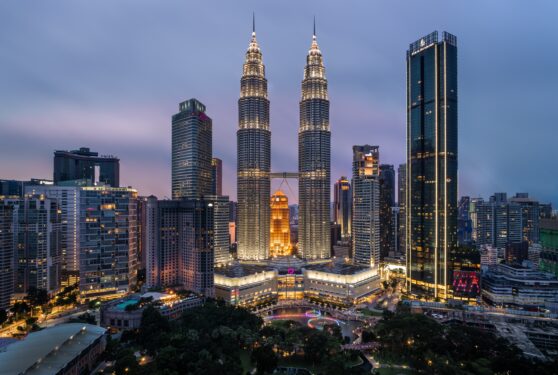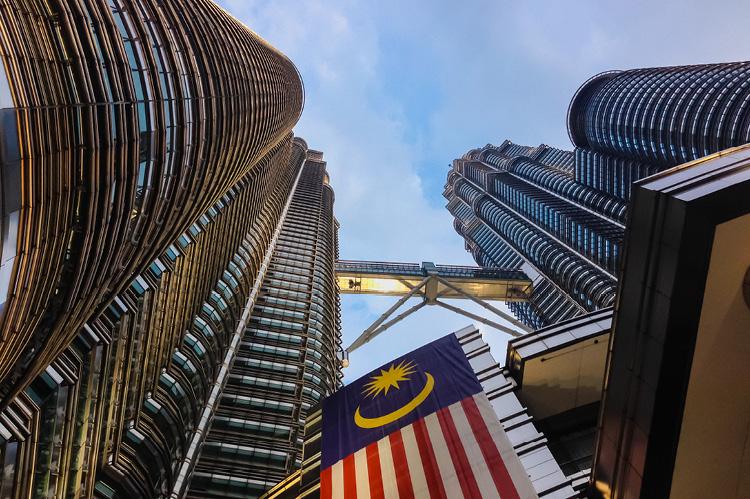THE COVID-19 pandemic was first identified in December 2019 in Wuhan China. The virus has killed approximately 11,000 Malaysians and four million people globally.
What are the epidemic progression, challenges and response in Malaysia? This issue can be analysed from “STEP” aspects, namely sociological, technological, economic and political.
Sociological
We were so proud of our movement control order (MCO 1.0) total lockdown which was imposed from March 18 to May 3, 2020. During this period, the country’s borders were closed with only travellers with approval from the relevant agencies allowed to enter the country.
The action taken by the ruling Government was well received with the people and business communities largely adhered strictly to the standard operating procedures (SOPs) where only essential services were allowed to operate. It was effective and were praised by our neighbouring countries as well as the World Health Organization (WHO).
But the feeling of over-confidence and complacency set in among the communities and the policy makers. We thought we were free and safe and all aspects could be managed.
However, SOPs which were introduced soon were not really followed; enforcement was lacking, double standards of enforcement and lackadaisical attitude such as balik kampung (returning to hometown) and crossing state borders were apparent.
The effectiveness of these mitigation measures is highly dependent on cooperation and compliance of all members of society. But sadly we have failed to overcome this problem.
In view of the non-compliance, Malaysia, now has the highest coronavirus infections per capita than anywhere in Asia as reported by the New York Times.
Technological
The Government’s weaknesses in managing the pandemic emerged: slow to decide what types of vaccines, the issues of pricing, volume, deliveries, and vaccine storage in an ultra-cold freezer while other countries have started inoculating.
The wait-and-see approach created uncertainty within the Government and the rakyat.
The country’s vaccination programme started on Feb 24 this year with a target of at least 23.6 million people to be vaccinated by February 2022 – a very ambitious goal indeed although this statistic has improved tremendously.
The purchase of vaccines is a profitable business. Soon, the integrity of procurement started to set in and veiled. Transparency is critical in an emergency. Any compromise involving rules and regulations can lead to abuse of the public procurement process, direct-negotiations can result in higher risk of conflict of interest and failure to deliver vital medical supplies.
The vaccine delivery system was dysfunctional, lack of coordination coupled with ineffective implementation.
It was not coordinated and fumbled. Parliament was closed due to the implementation of emergency in the country. There were no thorough checks-and-balance on vaccination costs with debates in the Parliament centering on the stimulus package that amounted to RM530 bil.
The only minister that appeared to be doing a good job was Khairy Jamaluddin – the Science, Technology and Innovation Minister-cum- Coordinating Minister for National COVID-19 Immunisation Programme (PICK).

Economical
The rakyat has been badly affected economically. The country lost RM2.4 bil daily throughout the implementation of MCO 1.0
The people started to lose their livelihoods due to downsizing and laying off of employees. Small and medium sized enterprises (SMEs) could not operate as most of them were involved in non-essential businesses – the result of which left many SMEs having to wind up or on the verge of being shut down.
Trade associations were confused with regard to government directives, unclear SOPs and most glaring of all, the double standards of enforcement.
Brigadier General Dr Mohd Arshil Moideen who is the management chief of the Malaysian Armed Forces Health Service Division confessed that the lack of integrated action, absence of ‘unified action’ and ‘coordination’ from the top-down were the reasons that contributed to why the country is unable to beat the current COVID-19 wave.
As it is – after a series of MCOs – the rakyat could not care less nor diligently follow SOPs due to the loss of their livelihood and economic hardship. Many people simply have no money to buy food and this was made worst by end-May when the Government announced a ‘total’ lockdown’.
This further encouraged the Government of the day to introduce more initiatives – PEMUDAH, PEMULIH, i-Sinar etc – which are all not sustainable on the longer term.
The Government must find ways to balance the need to restore the country’s economy and the importance of curbing the COVID-19 epidemic.
Political
Besides health crisis, we are also facing leadership, integrity and corruption crises. Politics is on the radar 24/7 in our country! Despite calling on the rakyat to focus on COVID-19 containment, political parties and politicians are still at a tug-a-war on who is the better leader for the country.
We have been in a state of political turmoil for months amid suspicions over the strength of legislators’ support for the Prime Minister. Horse trading is very active and doubtlessly political corruption is the mother of all evils.
The pandemic has shed a great light – the inexperience, uncaring and egoistic characters of some politicians who hold the fort. They lack confidence with their plans which were not properly thought, hence resulting in their decisions not being followed.

Improvement observed
Now the momentum of vaccination is getting pervasive and mobile. Donation of vaccines is pouring in from Saudi Arabia, Japan, the UK and other countries. Vaccination centers (PPVs) are mushrooming with walk-in capabilities which should have been started earlier.
“Movak” or mobile vaccination units are in place for Malaysia to achieve the “herd immunity” target as advised by WHO. A total of 25 million vaccine doses have been administered to-date.
Malaysians have expressed relief over the Government’s latest decision to relax the SOP. The question is how to overcome the “Delta” variant despite the daily 500,000 doses target vaccination rate.
We sincerely thank all fronliners for tirelessly taking care of our communities on a daily basis.
It is hoped that when the pandemic is finally brought under control and the general situation has improved, the Government must quickly focus on re-igniting economic activities and normal lives with SOPs.
The rakyat has to play their part by adhering to self-protection mode and remain civic-minded. Only a firm Government-rakyat collaboration can help bring our country back on track. – Aug 12, 2021
Datuk Seri Akhbar Satar is President of the Malaysia Association of Certified Fraud Examiners.
The views expressed are solely of the author and do not necessarily reflect those of Focus Malaysia.









